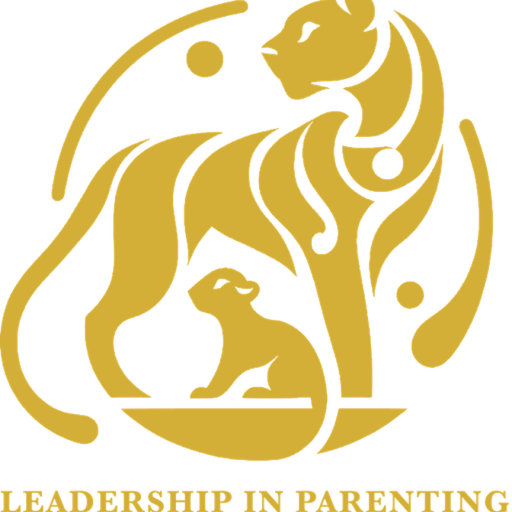 October 28, 2024
October 28, 2024
Parenting, like leadership in business, is about guiding, inspiring, and shaping others to reach their fullest potential. But unlike a business, where objectives and profits define success, parenting measures success in the character, confidence, and resilience of a child. Parenting leadership, at its core, is the gentle, yet powerful influence that steers a child’s journey, teaching them to navigate life’s storms, celebrate their strengths, and learn from their mistakes. Just as leadership transforms a company, a parent’s leadership can transform a child’s life, leaving an enduring legacy that stretches far beyond the home.
The foundation of parenting leadership is a vision, a dream not for the parent’s success, but for the child’s. When we look at our children, we hold a vision of the kind of people we hope they’ll become—thoughtful, kind, resilient, and capable. A parent with a clear vision isn’t controlling every aspect of their child’s life; they’re guiding them toward principles and values that will serve as their own compass in the future. This leadership style doesn’t dictate every step, but instead sets a course, giving a child the confidence to make choices within a framework of trust and support. In the same way a business leader sets a vision for the company, a parent-leader shows their child the bigger picture, helping them understand the values and goals that bring meaning to life.
But vision alone isn’t enough. To lead in parenting is to inspire, to lift a child’s spirit, especially during moments of self-doubt or difficulty. Great parenting leaders understand the importance of encouragement, the power of a kind word, and the value of being present, no matter how busy life becomes. When a child feels understood and appreciated, they don’t just grow; they thrive. They begin to believe in themselves, mirroring the belief that their parents have in them. Just like employees who feel valued are more engaged and motivated, children who feel loved and appreciated have a deep sense of security that fosters both independence and confidence. They grow up understanding that their worth isn’t tied to accomplishments alone but is deeply rooted in who they are.
Parenting, too, requires an incredible level of adaptability. Children, like businesses, grow and change rapidly. As they move from one stage to another, the challenges shift and evolve. The tantrums of a toddler give way to the rebelliousness of a teenager, and with each new stage, the rules seem to change. A great parenting leader, like a great business leader, understands the importance of adjusting to these changes, of learning to approach each stage with fresh perspective and flexibility. In a world where the pressure to succeed can weigh heavily on a child, a parent-leader offers them the grace to explore, to make mistakes, and to find their own way. They’re not rigid; they are the steady hand that adapts to each new challenge, modeling resilience and teaching their child to be just as resilient.
Leadership in parenting is also about fostering curiosity and innovation. Great parents don’t just give answers; they inspire questions. They encourage their children to wonder, to ask, to imagine a world beyond what they see in front of them. In business, innovation is essential to staying ahead, but in parenting, it’s essential for helping a child understand themselves and the world. Instead of just teaching children to follow the rules, a parent-leader inspires them to think, to question, and to find creative solutions to their problems. They help their children see the beauty in learning, not just for school, but for life. This isn’t just about developing intelligence; it’s about nurturing a spirit of curiosity and an openness to new experiences, traits that will serve them well in all areas of life.
And perhaps most importantly, parenting leadership is built on the bonds of trust and connection. A great parent-leader builds a relationship with their child based on understanding and empathy, knowing that these are the bridges to their child’s heart. They’re there in the quiet moments, they listen without judgment, and they offer guidance without control. This isn’t about asserting authority; it’s about cultivating a relationship where the child feels safe to be themselves. When a child feels truly connected to their parent, they’re more likely to communicate openly, to seek advice, and to follow their guidance—not out of fear, but out of respect and trust. These bonds form the foundation of a family’s strength, creating a safe space where a child can grow into their fullest potential.
In the end, parenting leadership, like business leadership, is about choices. It’s the choice to lead with kindness, to guide with patience, and to teach by example. It’s the choice to see challenges as opportunities, to celebrate even small victories, and to hold a steady hand when times are tough. Great parenting leaders don’t demand perfection; they value progress. They know that every mistake, every tear, every challenge is a step toward resilience, empathy, and strength. They understand that each day is an opportunity to reinforce the values they hold dear, not through words alone, but through actions and presence.
Parenting isn’t about control; it’s about influence. It’s about shaping a young life with intention, compassion, and wisdom. Just as leadership transforms a business from a workplace into a community, parenting leadership transforms a family into a space of growth, love, and purpose. The legacy of great parenting isn’t found in the material successes of a child but in their ability to navigate life with integrity, kindness, and courage.
In a world where external pressures can pull children in countless directions, a parent-leader remains the steady, guiding force. They provide not only shelter but strength, not only discipline but understanding. The importance of leadership in parenting cannot be overstated—it’s the foundation on which future generations are built, shaping not only the lives of children but, ultimately, the world they will help to create. In parenting, as in business, leadership isn’t just important; it’s essential. It’s the love, wisdom, and guidance that turn potential into reality, and dreams into a life well-lived.
Author: Dana Vilaia
